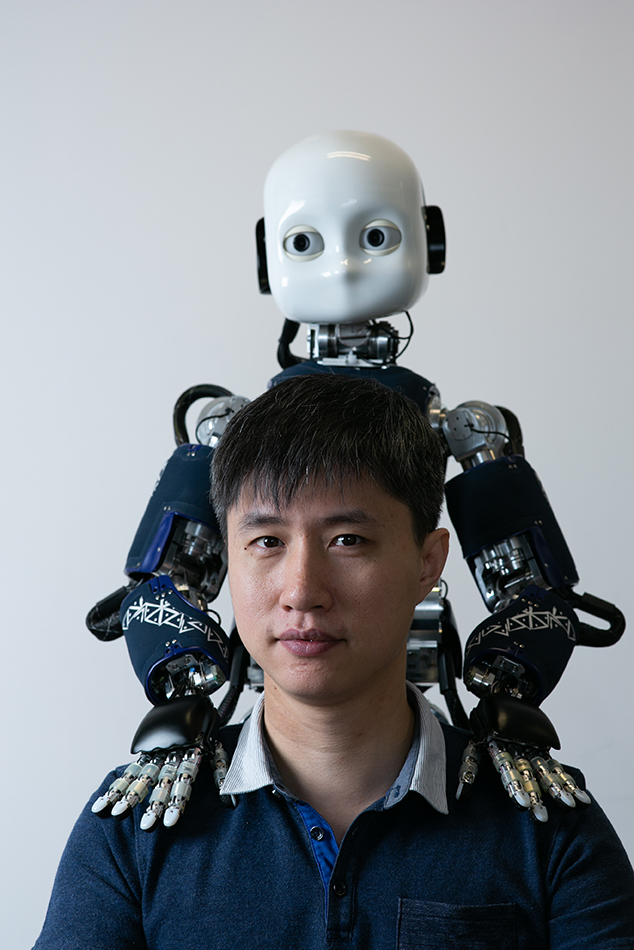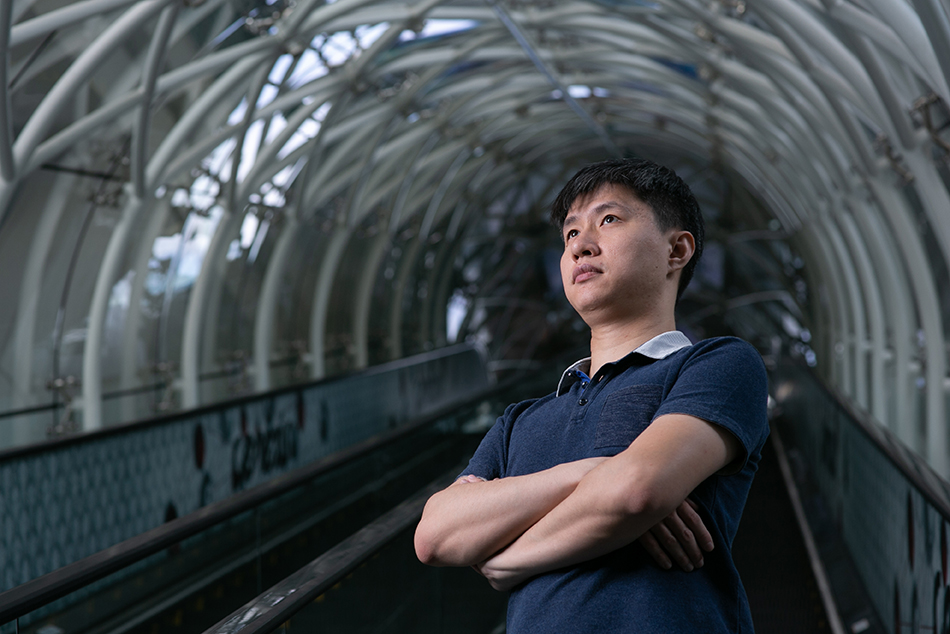FACES OF A*STAR
Bringing Machines Closer to Men: Talent Times
Robots today serve food in restaurants- sort out parcels in warehouses and even dispense medicine at pharmacies- freeing up their human co-workers’ time to handle more complex tasks. With this additional automated help- waiters can interact with customers to build relationships and pharmacists can spend quality time attending to their patients on questions about their prescriptions.
As robots take on more roles- it is not surprising that Dr Wu Yan from A*STAR’s Institute for Infocomm Research (I2R) often gets asked whether these machines will take over the world. His simple answer is no.
Instead- he aims to bring machines closer to men by giving them the ability to learn simply by observing what people do- and the sense of touch.
It’s about augmenting our capabilities as humans.
Learning by observing
Robots are typically programmed to do things- a convention that Dr Wu intends to change. Leading the Robot Learning and Dexterity department in I2R as a Principal Investigator- Dr Wu and his team are now developing a machine-learning model that allows robots to learn through observation.
Take the act of making tea. With the machine-learning model- the robot can be taught the skill through a video recording of the task- or getting a person to verbally instruct it or guide its arm through the motion of making tea. When a person then tries to teach the robot to make tea without sugar or milk- he or she will simply need to verbally instruct it. No further physical teaching will be required.
This will dramatically improve the productivity of robots as well as the efficiency of organisations using these machines.
Robots with a sense of touch

Another area of research focus is the dexterity of a robotic arm – the ability to perform difficult tasks quickly and skillfully with hands.
Dr Wu’s team is working on several projects to see how incorporating touch modality with camera and auditory inputs – which robots today rely heavily on to gather information and make decisions – can make robots nimbler in their arm movements. This will benefit many in their works including the construction sector. When drilling into a wall- touch sensing will allow a robot to feel resistance- hence it will know to stop if it hits a pipe.
Robotics- a challenging multidisciplinary field
To achieve his goals- Dr Wu often finds himself dabbling in various fields. It is this multidisciplinary nature of robotics that is most challenging. He has to understand some psychology as robots interact in non-verbal ways- and ponder about design elements like how a robotic arm should be structured.
“On some days I wake up thinking ‘Oh it needs to feel’ so I will start researching on sensors- and the next moment I will think ‘Gosh it needs to be intelligent’ and my mind gets flooded with thoughts about artificial intelligence-” he said.
Cultivating the next generation of scientists
There is a growing push in Singapore to cultivate students’ interest in pursuing the science- technology- engineering and mathematics (STEM) studies and career pathway. Demand for STEM graduates is expected to grow as Singapore continues to move towards becoming a Smart Nation.
In line with the national movement- A*STAR recently launched the A*STAR Computing and Information Science (ACIS) Scholarship to attract top talents to pursue a PhD in computing and information science disciplines.
Through working with A*STAR’s partners – including autonomous universities- government agencies and top global companies – scholars will gain firsthand research experiences on real-world issues across the entire spectrum of computing science. This ranges from deep learning for healthcare- data analytics for improved machine learning- to modelling and simulation for advanced applications.

As a scientist- Dr Wu believes it is also his responsibility to help young people understand science and become interested in research. Outside of work- the father of two young children – aged 4 and 6 – mentors students from secondary school to adults doing their postgraduate doctoral degrees. He has mentored over 30 individuals since 2013.
For Dr Wu- his calling is simple: "Whatever I am doing- I want to make a positive impact. I want to create something that changes people’s lives."
Was this article helpful?
A*STAR celebrates International Women's Day

From groundbreaking discoveries to cutting-edge research, our researchers are empowering the next generation of female science, technology, engineering and mathematics (STEM) leaders.
Get inspired by our #WomeninSTEM
